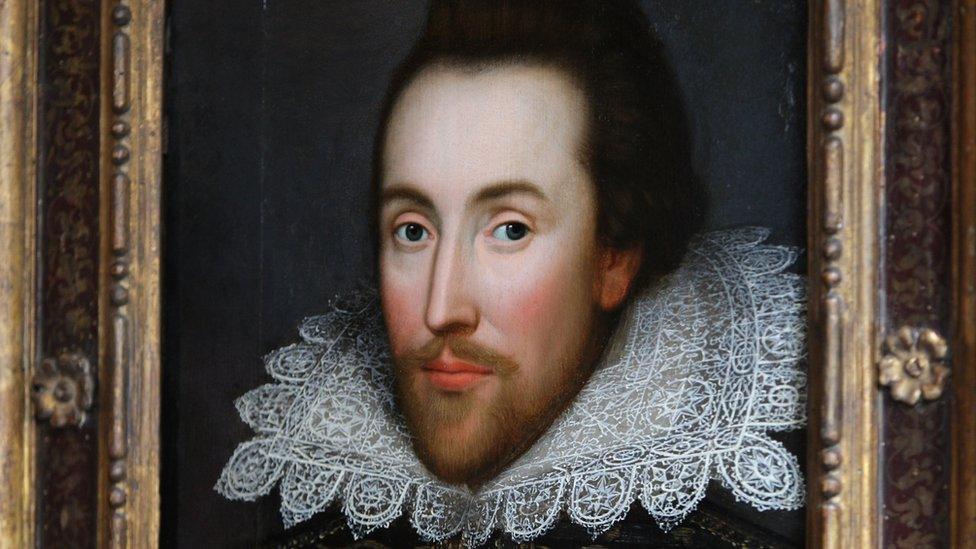Will Gompertz reviews Shakespeare in a Divided America by James Shapiro ★★★★☆
- Published
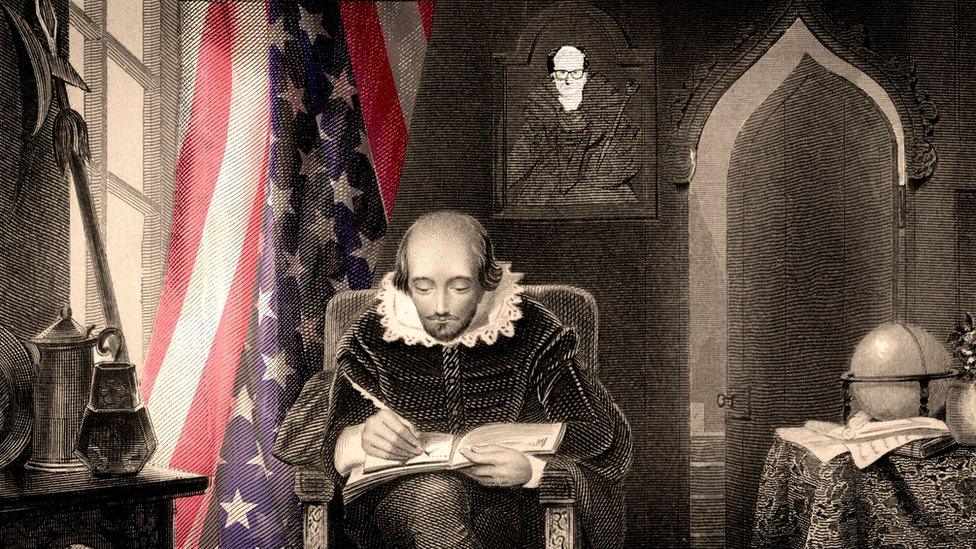
In a world currently in a state of flux there are, at least, some constants. Kim Kardashian is still busy on Instagram, Piers Morgan is still busy on Twitter, and theatre producers across the globe are still busy putting on Shakespeare's plays.
The Bard has been dead for more than 400 years but his work lives on and on and on and on, with productions perpetually running across the planet.
Whether he wrote them on his own, or with a little help from his friends, matters not. The point is, the 37 plays for which he is credited continue to resonate around the world four centuries after their creation. And that is extraordinary.
Most art dates and disappears.
Some art sticks around only to become an interesting artefact or a slavishly worshipped icon.
Not so with Shakespeare.

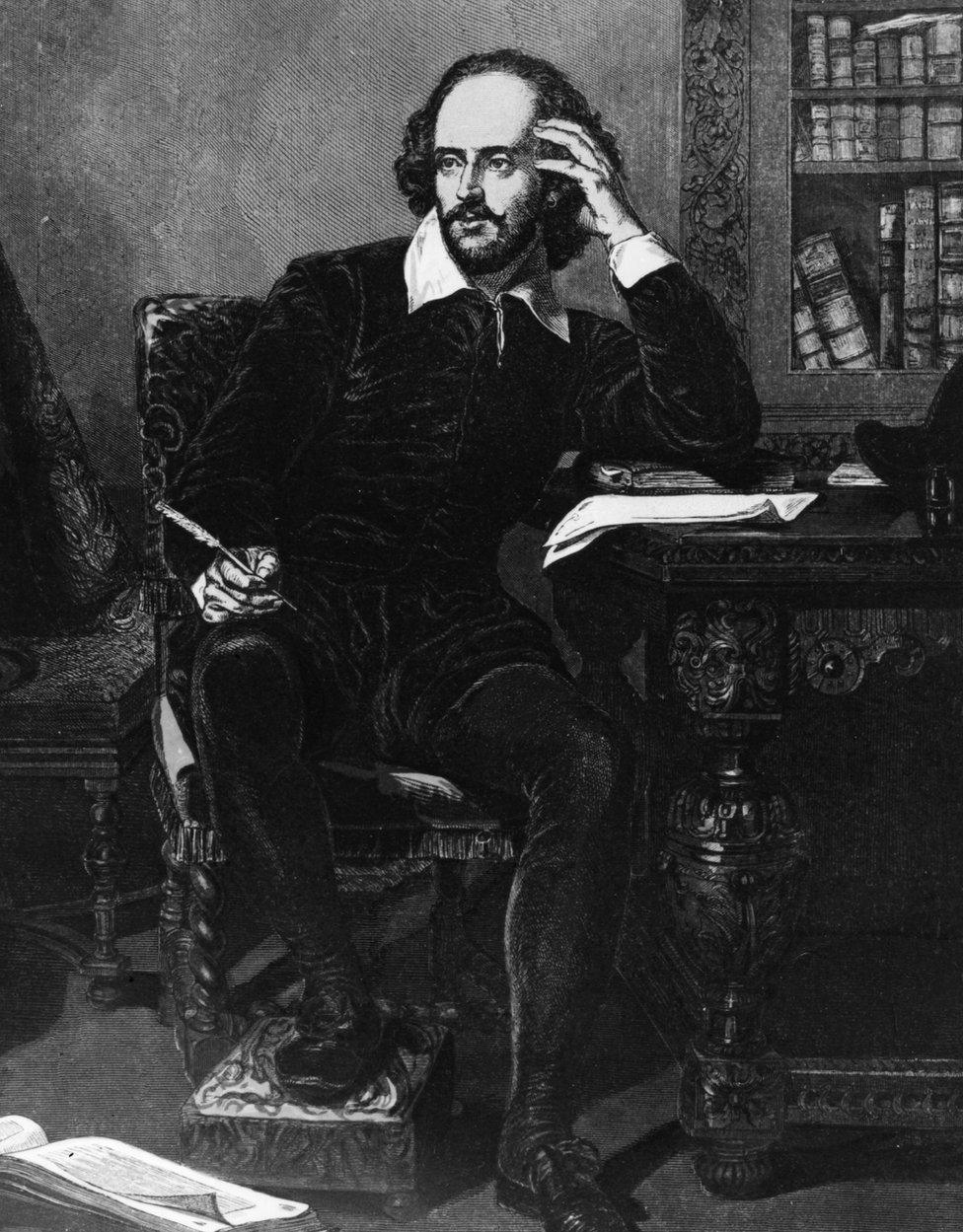
William Shakespeare lived from 1564 until 1616

His Elizabethan entertainments are not stuck in the fetid mud of the late Tudor court. They have moved with the times. Not simply because their themes and ideas remain contemporary, but more for the depth in which he explored incest, murder, racism, sexism, madness, betrayal and war.
His genius was the precision of his writing and characterisation, but his longevity could be down to his ambiguity.
William Shakespeare wrote with a poker face.
His plays were full of opinion, but he rarely revealed his own, which left his work gloriously open to interpretation to those who wished to co-opt it for their own purposes.
Hence, during the American War of Independence (1775 - 1783) both sides rallied their troops with Hamlet's famous soliloquy To Be or Not to Be, thinking it spoke specifically to them. Similarly, when it came to the pro-slavery southern states resisting anti-slavery laws proposed by the abolitionist north a few decades later, both cited the love of Desdemona (a white woman) for Othello (a black man) as legitimising their point of view.

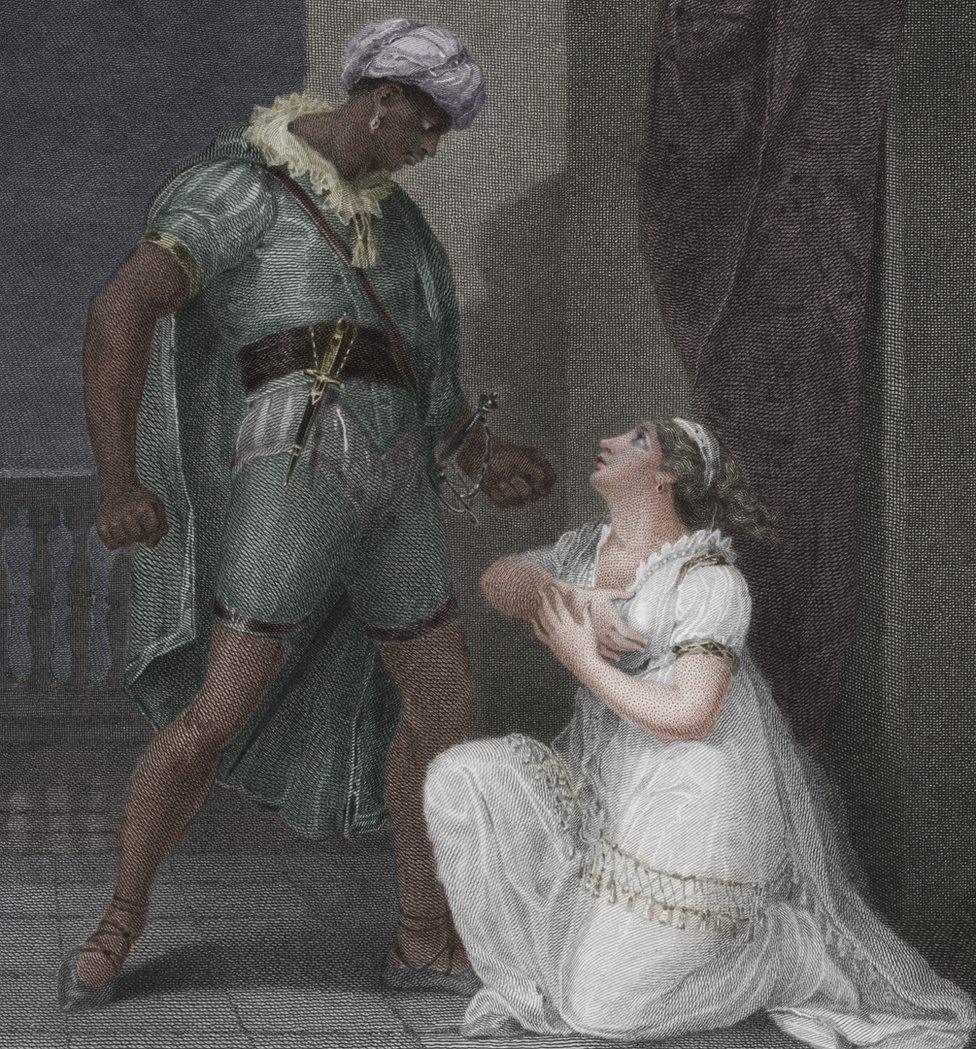
Desdemona's interracial marriage to Othello apparently left America's sixth President John Quincy Adams disgusted, even though he was in favour of abolishing slavery

In fact, you could go through the entire history of colonised America and discover examples of how Shakespeare has played a prominent role in significant political and social shifts in a country he never visited and knew precious little about.
You could write a very good book about it. Which is exactly what the Professor of English at Columbia University has done.
James Shapiro is an academic who not only teaches Shakespeare, but has also learnt a thing or two himself from the Sweet Swan of Avon about the art of storytelling.
His book, Shakespeare in a Divided America, is an unpretentious, fact-filled, lightly-written, meticulously-researched history of seven politically-defining moments that occurred in the US over the past 200 years.
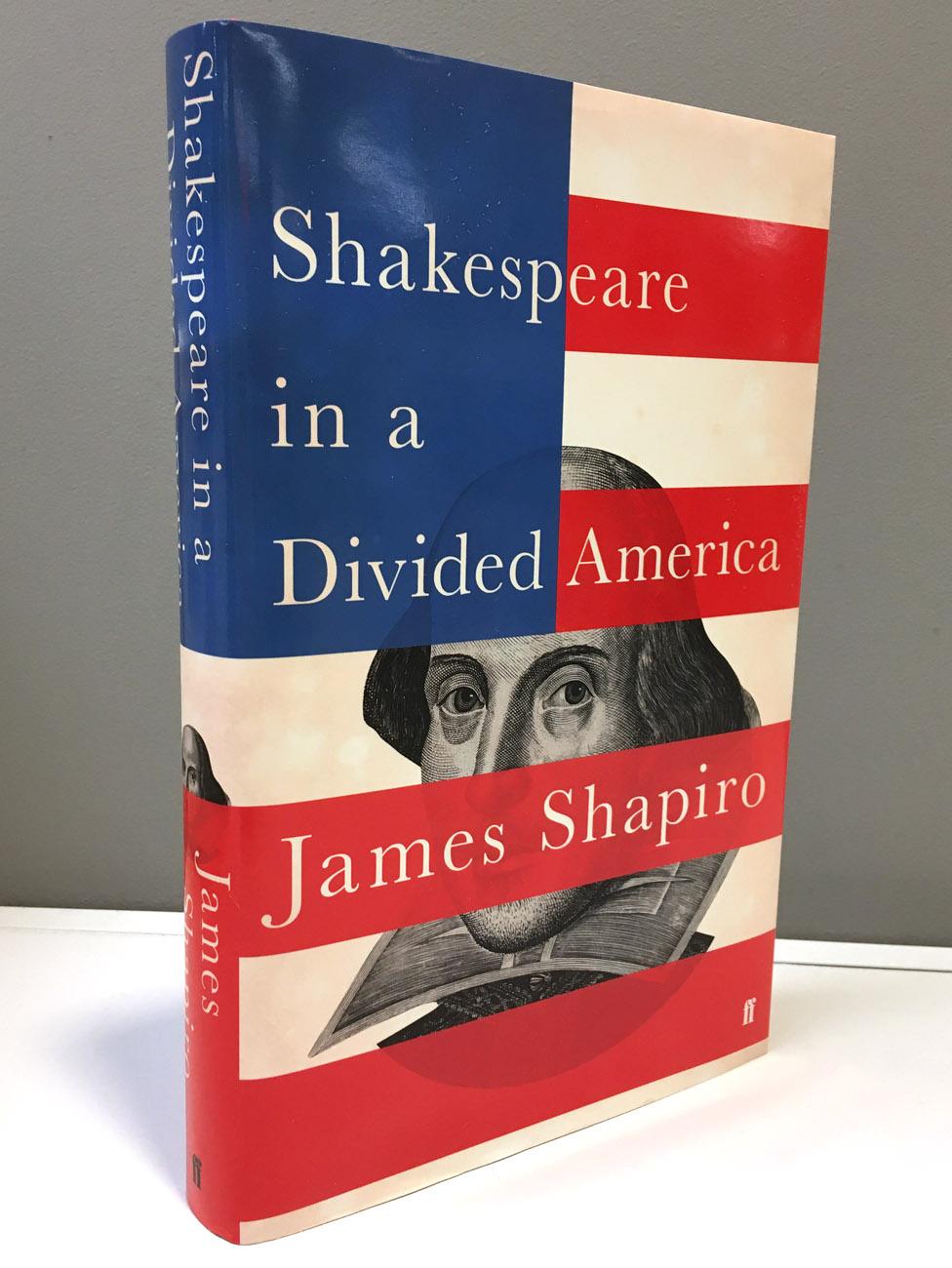
It's not remotely nerdy.
There's no talk of iambic pentameters or assumed arcane knowledge. That would be contrary to the purpose of the book, which is to take Shakespeare out of the academic ghetto to demonstrate that all the world really is a stage and each and every one of us merely players.
Shapiro starts and ends with the present day, telling a story about a recent production of Julius Caesar at the Public Theater in New York, in which an allusion is clearly made suggesting the current President is the eponymous Roman leader. And we all know what happened to him, don't we Brutus?

This production of Julius Caesar with Gregg Henry (centre) as Caesar at the Public Theater in New York in 2017 depicted the assassination of a Trump-like Roman ruler
I won't delve further into that particular contemporary tale as it would spoil it, other than to say it is a very potent example of the universality and power of Shakespeare's plays.
Think of any major world event, and then think of every little inconsequential moment, and you'll find Will from Stratford has already captured it perfectly with piercing accuracy in beautiful verse.
Abraham Lincoln was a big fan. So was the chap who assassinated him.

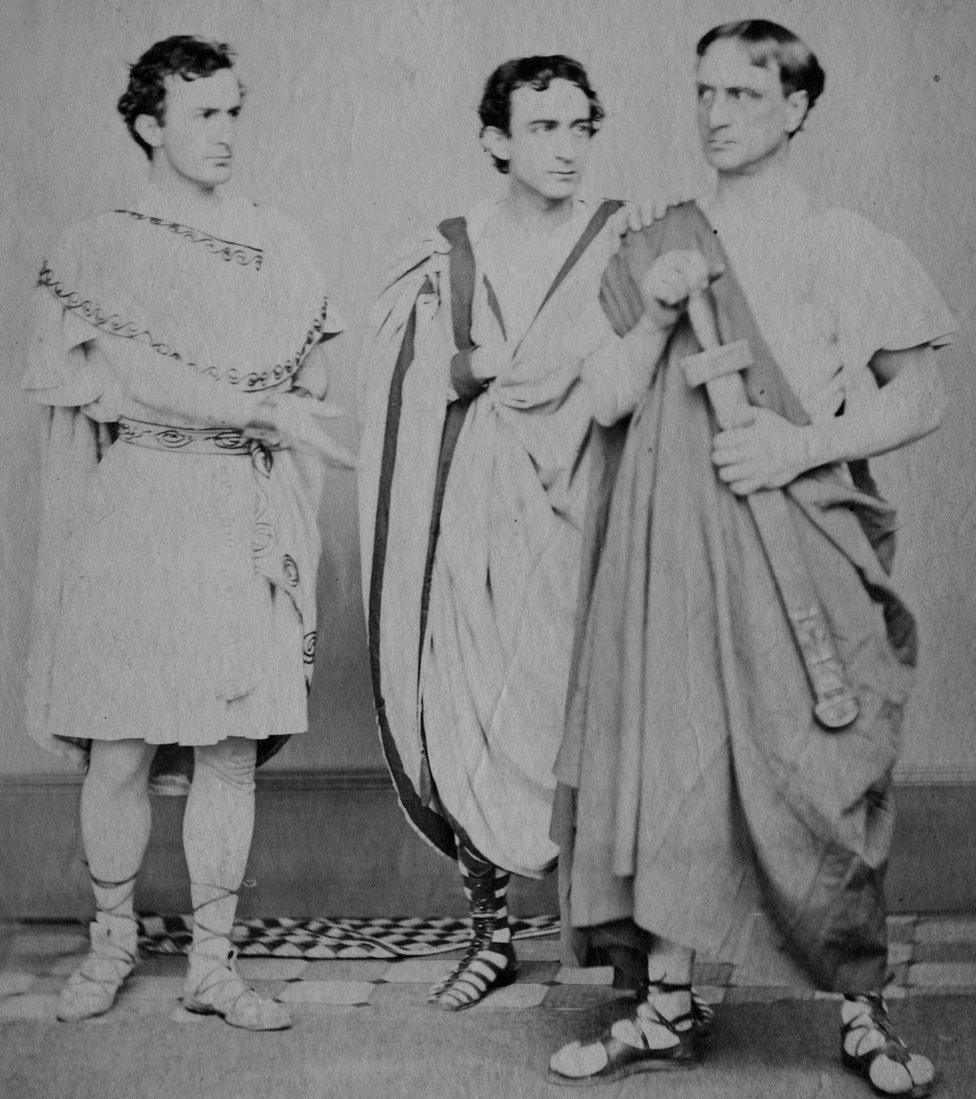
The actor John Wilkes Booth (left), who assassinated Abraham Lincoln in 1865, said of all Shakespeare's characters, his favourite was Brutus

As was Bill Clinton, and his one-time lover Monica Lewinsky, who placed this advertisement in the Washington Post on Valentine's Day 1997:
HANDSOME
With love's light wings did
I o'er perch these walls
For stony limits cannot hold love out,
And what love can do that dares love attempt.
•Romeo & Juliet 2:2
Happy Valentine's Day
M
As Shapiro explains, this public love note was intended for the then President, who, being a Shakespeare fan would have noticed Ms Lewinsky used a passage spoken by Romeo not Juliet - a gender swap that would have amused the great playwright who liked nothing more than a bit of cross-dressing.
But the book is not all about him.
The star of the show is America and its past, which in this instance, broadly starts with the Pilgrim Fathers arriving from England after a very rough crossing on the Mayflower in 1620 (four years after Shakespeare's death). As puritans, they were no fans of theatre, and Shakespeare was no fan of theirs, judging by the way he lampoons them in the guise of the pompous Malvolio in Twelfth Night.

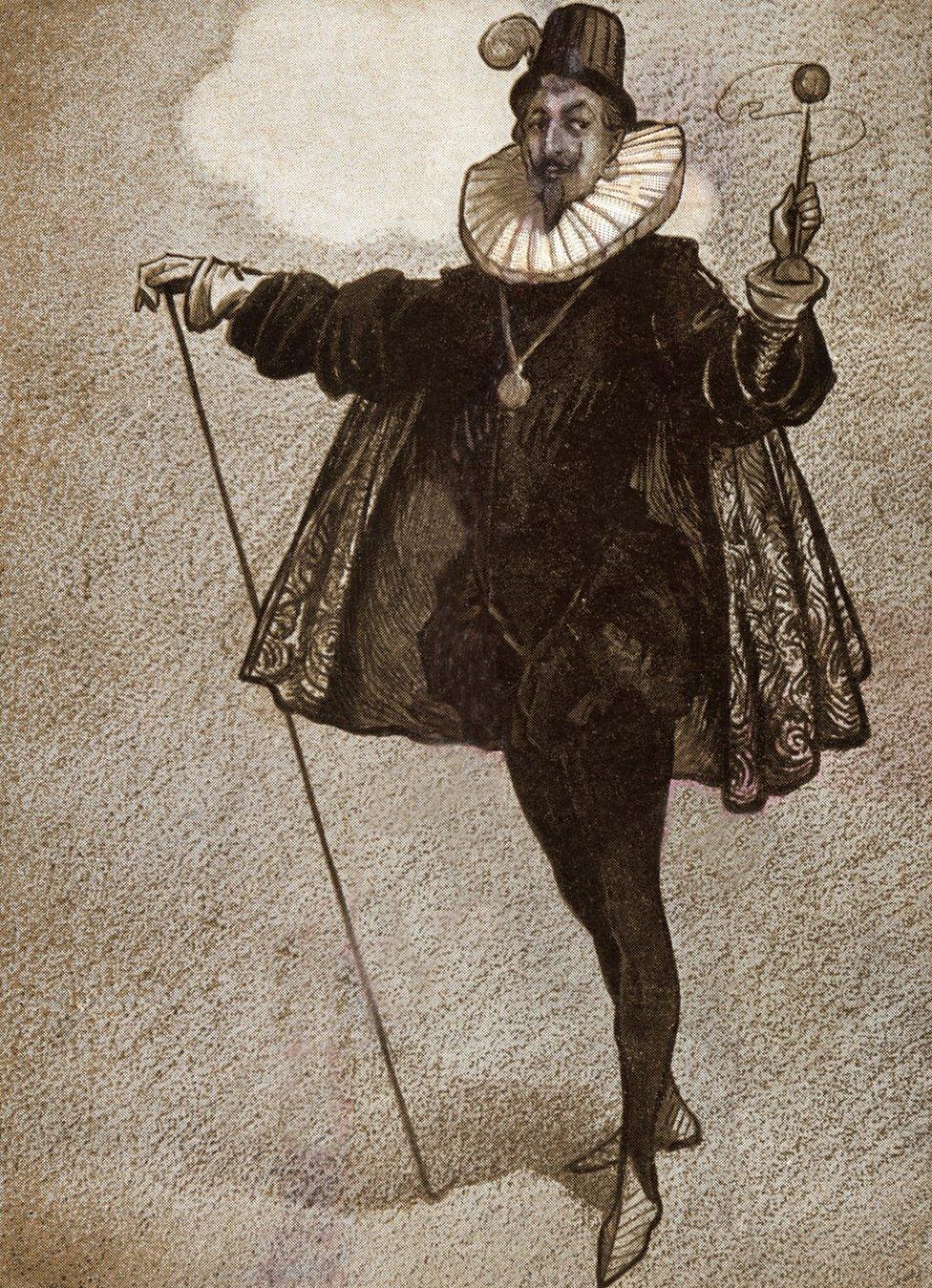
The Bard satirized the Pilgrim Fathers through the self-important character of Malvolio in Twelfth Night

Nevertheless, those who followed in the Pilgrim Fathers' wake brought The Bard's words with them, and soon enough he had become a staple of American culture along with the Bible and apple pie. He represented the roots of a culture that had colonised America, the leaders of which saw themselves as Anglo-Saxon, and could claim as their own.
Shakespeare was their poet laureate in perpetuity.
Shapiro finds him in the country's troubled history of race relations, he has him as a protagonist in civil unrest and class war, and then used him as a pawn as America responded to an influx of immigrants in the early decades of the 20th Century.

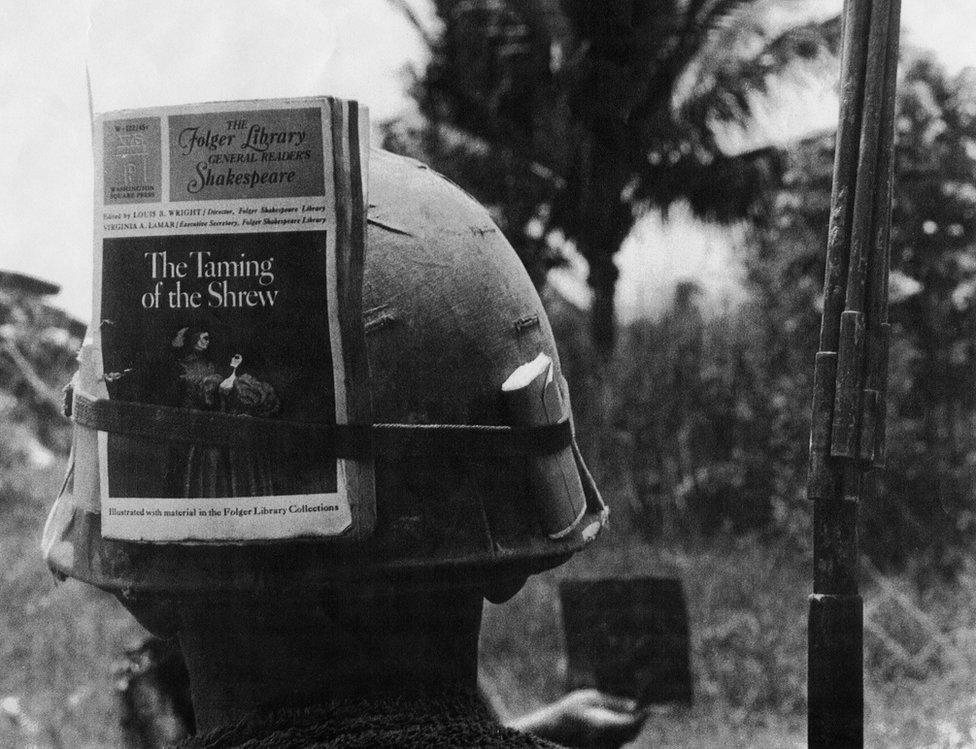
Americans' love for Shakespeare travelled far - including with this US soldier in Vietnam, who'd tied the Folger Shakespeare edition of The Taming of the Shrew to his helmet

None of this is gratuitous; Shakespeare is indeed an actor in all these events. But he is not always the leading man as Shapiro sometimes suggests.
To make the case, the author digresses too much on occasion, taking the reader down dreary alleys and winding corridors, which illustrate his deep knowledge of American theatre but wander off topic to the detriment of the broader narrative thrust.
He tells a very good story about how the hit musical Kiss Me Kate evolved from a young producer watching a famous theatrical married couple squabbling backstage when playing the leads in Taming of the Shrew, and another about the film Shakespeare in Love, which is a little over-written but deals firmly and fairly with its disgraced producer, Harvey Weinstein.

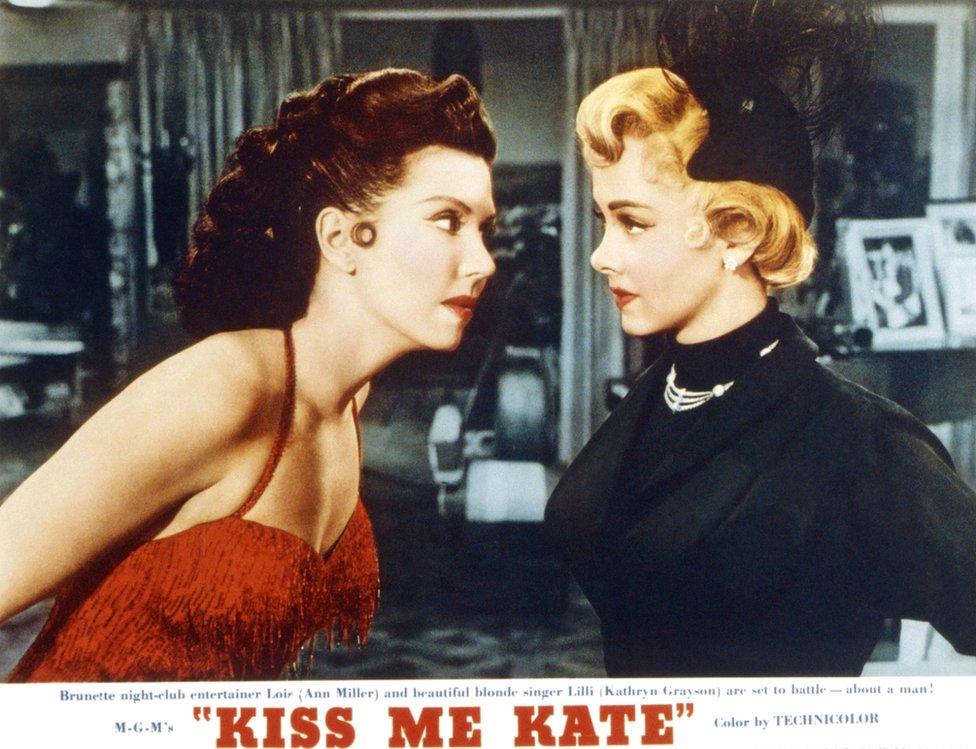
The Bard's The Taming of the Shrew inspired the Broadway musical Kiss Me Kate, which was then adapted into a film starring Ann Miller (L) and Kathryn Grayson (R) in 1953


Gwyneth Paltrow won an Oscar for her role in Shakespeare In Love, 1998, where she played the role of Viola, but here disguised as Thomas Kent

There has been so much written about Shakespeare, and a great deal about America's history, but by bringing them together James Shapiro has pulled off a masterstroke and illuminated both in a fresh, vivid, and thoroughly entertaining book.
Recent reviews by Will Gompertz
Follow Will Gompertz on Twitter, external
- Published13 April 2019
